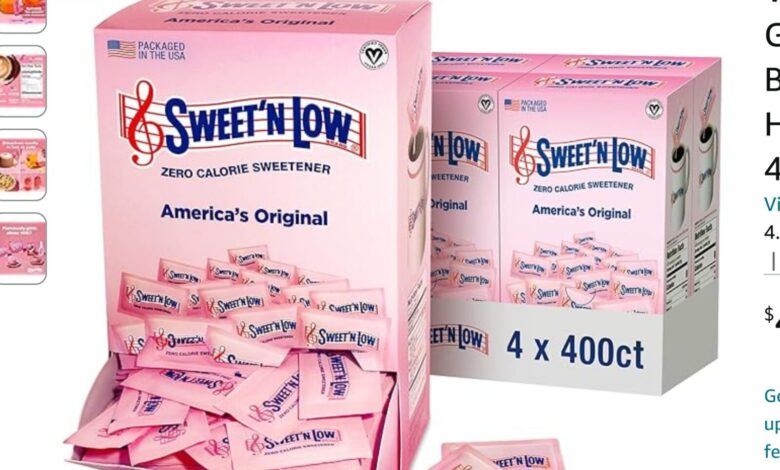SUGAR SUBSTITUTES NOT SO SAFE!

A year ago, I wrote an article declaring the regular use of 8 packets of Sweet n’ Low to be safe. I had a friend who regularly sweetened his iced tea with that amount of saccharin, the ingredient in Sweet n’ Low. The references used for that article all indicated that sacchararin had no significant adverse effects. But now comes a study from the University of San Paulo in Brazil that has shown that consuming low- and no-calorie sweeteners causes a 62% faster decline in thinking and memory skills. This effect was found in patients younger than 60 years and not in older people. Diabetics are at high risk as well.
For this study, 12,722 patients were given 7 artificial sweeteners (aspartame, saccharin, acesulfame-K, erythritol, sorbitol, xylitol, tagatose) for 12 years. Every four years standard cognitive tests were administered. The patients were divided into low, moderate, and high consumption groups. For example, the highest aspartame group took an amount that was equal to the amount of aspartame in one can of diet soda. The group given Sorbitol had the highest consumption amount.
At the 8 year follow-up, cognitive testing revealed the moderate and high consumption groups of all sweeteners to have a 35% and 62% decline “in global cognition” when compared to peers in the low consumption groups. “Verbal fluency also suffered with participants in the two highest consumption groups showing 110% and 173% decline in verbal fluency.” Thus, moderate to high consumption of low- and no-calorie sweeteners were associated with a decline in global cognition and verbal fluency. Taking this data in conjunction with dietary exposure to ultra processed food additives, we’re seeing effects on brain health that we are only beginning to understand.
Again, these findings have only been shown in adults age 60 or less. This Brazilian study does contradict the results I previously reported. Perhaps 8 packets of Sweet n’ Low isn’t as safe as I thought it was. Anything in moderation is better than the full-blown excess amount. That only makes sense. We will know more about this in the coming years.
Reference: Brooks M. Sugar Substitutes Not So Sweet for Brain Health. MEDSCAPE 2025 September 4. MEDSCAPE.com




